American Spa recently hosted a roundtable in our New York City offices, inviting spa directors from Manhattan and the surrounding area. In attendance were Lori Kruk, spa director for the newly opened Aman, New York; Jasmine Warren, spa director, Opus Spa at Opus Westchester, part of Marriott’s Autograph Collection; Rita Rroku-Berishaj, director of spa at the just-opened The Ritz-Carlton Spa New York, NoMad; Bruce Schoenberg, owner, Oasis Day Spa, which is in its 25th year; and Christine Mariconti, spa director at Miraval Berkshires.
The roundtable was moderated by Nicole Altavilla, head of content for American Spa.
Following is a condensed version of the fascinating discussion:
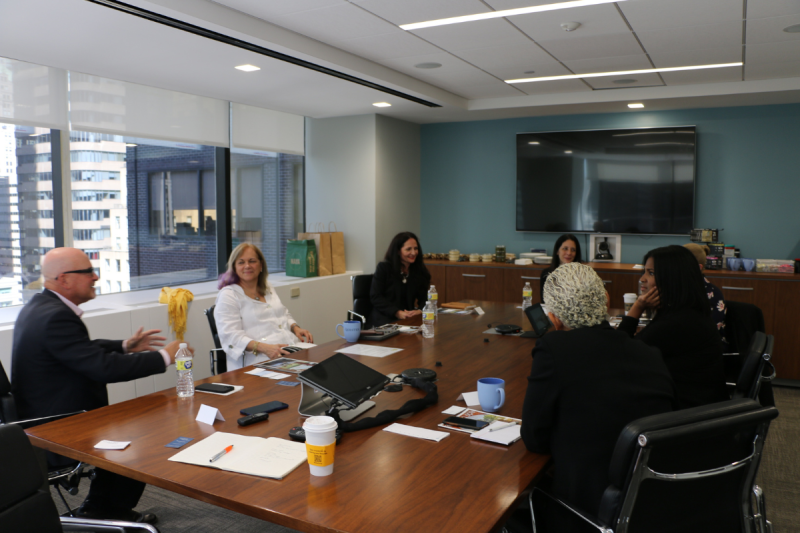
Nicole Altavilla, American Spa: Welcome to our roundtable. I personally have been with American Spa since 2007 in different editorial roles and as head of content since 2020. One of my favorite things to do is to meet industry professionals to learn about your markets and what your clients are looking for today and how the magazine and website can better serve our industry. To get started, in today's challenging business environment, Lori and Rita, can you tell us a little bit about what it's like to open a spa in New York City with such a sophisticated and diverse market?
Rita Rroku-Berishaj, The Ritz-Carlton NoMad, New York: It takes lots of sweat and passion and energy. This opening for me has been a little different. Coming from the pandemic, everything has really shifted in our industry. The planning is actually a lot more last minute. Once clients are in the spa, they want to spend more time with us. I do see a shift toward longer treatments. Wellness is a big part of the hotel but also in the spa, as well. And that is absolutely something that's really very important to the guests. Guests are very educated, they are very willing to spend lots of money, but they want to see the benefits, they want to understand the benefits of the treatments, even before they arrive.
As far as staffing goes, things have definitely changed, I think with the pandemic, particularly in New York City, a lot of people changed what they wanted to do. As we know, New York was hit really hard, and in particular, hotel spas. Staff now want flexibility and I think it's great. I think benefits are important, not only for full-time but for part-time. More of us have invested in training.
I mean, it's about fine-tuning every single day. It’s really about being flexible with everything as things do change. We need to really push to evolve what standards used to be. Standards seem to change very quickly compared to my past experience before the pandemic, and I have opened quite a few spas.
Lori Kruk, Aman, New York: This has probably been the toughest opening that I've done. I know how we were affected in Asia, in New York, I think it's similar, when it comes to getting things on time. The supply and demand is just insane for turnaround time. When you want to order things, it's not one week, it's three months. So, when things don't work and you need to reorder, you're kind of shooting off the cuff. I call it MacGyver. You're making simulations until something arrives. That was something I didn't expect, to be honest.
Pricing has definitely gone up due to shipping, obviously. Everybody wants the individual amenities, they want everything in plastic and although it's not sustainable, people are really concerned about hygiene now, more so than previously in my experiences.
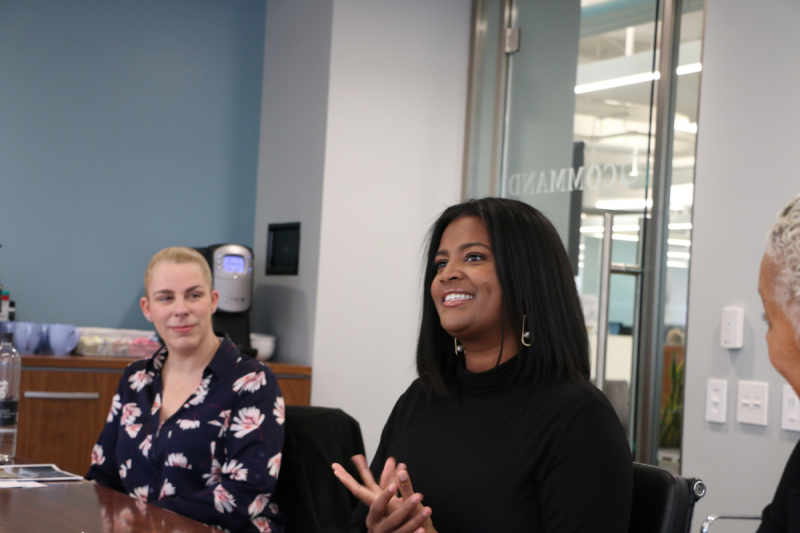
Nicole Altavilla, American Spa: Jasmine, you’ve just opened the Opus Spa at the Opus Westchester. Can you tell us about that?
Jasmine Warren, Opus Spa: I’ve had very similar experiences with openings. I actually do enjoy that process and one thing that we noticed in Westchester that's made things a little difficult for us is that we have a lot of small med-spa businesses in the area. I actually did the competitive set and we saw that there are about 30 within a five-mile radius. So as a hotel spa, we are giving full amenities, the full experience. Instead of just massages and facials, we're offering nutritional consults now, we're offering acupuncture. We’ve almost made this into a wellness retreat so that the guests can essentially have a one-stop shop when they come to the spa. We’re really trying to get people back and into enjoying that whole spa experience.
Nicole Altavilla, American Spa: Christine, Miraval Berkshires opened up right before the pandemic, right?
Christine Mariconti, Miraval Berksires: We did. So, Cranwell was bought and then closed to become Miraval Berkshires. Most of the renovation process happened during the pandemic. So people were sent home, came back, construction stopped and re-started. Project managers came and went. And then we opened in July of 2020, with no steam, no sauna. [Because of the pandemic], it was “come in, get your service and get back to your room to shower.” So we really just did this evolution of opening. I, in turn, also created a laundry system for our property. So there was that whole piece that coincided with getting the opening done and waiting on the equipment that had to come.
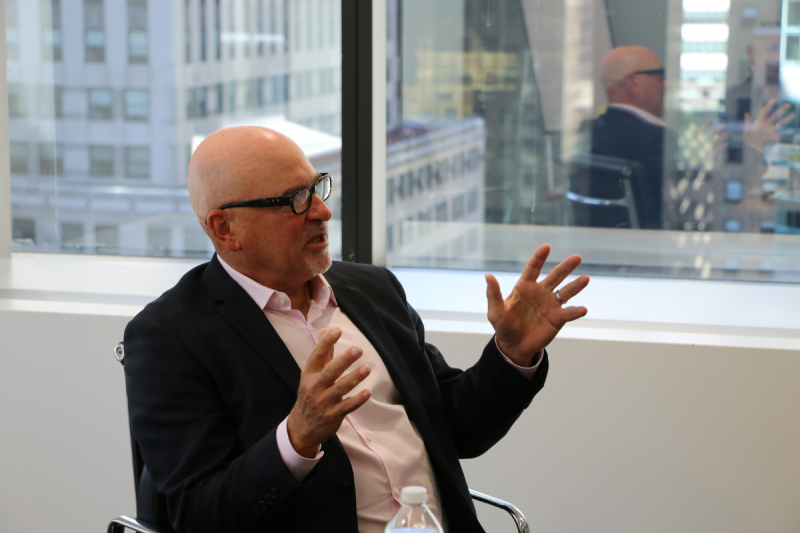
Nicole Altavilla, American Spa: Bruce, Oasis is in its 25th year. What are the challenges you’ve faced?
Bruce Schoenberg, Oasis Day Spa: I'm going to tell you something that's interesting. The four of you worked for corporations that either are a destination spa or part of a hotel, and that probably constitutes 20 percent of the industry; 80 percent of the industry is mom-and-pop spas, which have had a completely different experience than the four of you. For instance, we're celebrating our 25th year coming up here; our brand started as a tiny seven-room location in Union Square before Union Square in New York City popped. Then we opened up at One Park Avenue. And then we were the first one to open up a spa in the airport at JFK. I opened up a full-blown spa at JetBlue, and then we opened up in a hotel at the Affinia hotel.
Decisions are made differently for the small business owner. I consider myself a small business, even though we're a spa in New York that has 20 rooms here and 17 rooms up in Westchester. We're still a small mom-and-pop business. So my relationships with my employees and my vendors have to be different because I'm a hands-on owner even though I delegate tremendously.
Society as a whole sees the value of what we do and it's a part of the lifestyle now. So for me as a small business owner, you were talking about waiting for products to come in, it's all backordered, it really hits a small business owner hard. You all are a segment of the hotel, the hotel is not going to go out of business because the spa is not paying.
My job now is primarily finance and marketing. For the day-to day operations, I hire good people and let them do that. I have my weekly meeting with them, What do you need? What can I do? I'm just trying to make sure that we can navigate through these challenging times. For example, the building at One Park Avenue used to get 3,000 people checking in a day. Whether it was people working in the building or visiting the building. The Oasis Spa doors are right as you're entering the building. You can easily see us. That's a lot of exposure and we used to have people from the building come down. We’re also in an area where there's a lot of commercial office buildings. Instead of 3,000 check-ins a day at One Park last month, there were 600. That has a major impact on my Monday to Thursday business. I'm still getting demand on the weekends from people who live here and those who visit New York who aren't staying at a hotel. But our weekday business here is slim. However, up in Westchester, which is a bedroom community, more people are working from home now, so they might take the afternoon to go get a massage. So I have more demand up in Westchester during the week. Pre-pandemic, Manhattan had more demand during the week than Westchester.
Lori Kruk, Aman, New York: Before coming here, I was at a private club in Hong Kong and I had two clubhouses, one they called the town club and the other was the country club. The town club was in a high rise; when the pandemic hit, the Monday to Thursday, business died essentially, because everybody was working from home. But the country club business took off like you would not believe. So it's interesting how things develop based on what's happening now.
Bruce Schoenberg, Oasis Day Spa: I think this is going to be a seismic change or tipping point for how work is now done. And it could end up being for the better. People are more mobile now. They can work from almost anywhere in certain jobs.
Jasmine Warren, Opus Spa: Monday is now one of our busier days. On Sundays, we've kind of died and Mondays is a big day. I wonder if people go to work on Mondays anymore.
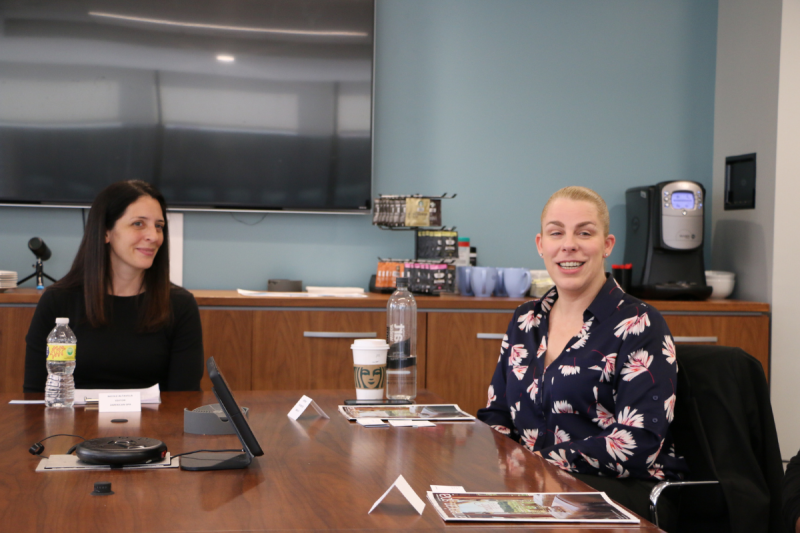
Nicole Altavilla, American Spa: Can each of you share a pivotal moment in your career, when you had to make a big decision and how did that decision affect your career?
Lori Kruk, Aman, New York: I took a phone call [about a job with Mandarin Oriental in China]; I had a great interview and I hung up and I thought, “I'm going to take this job.” And then I Googled where Sanya was, because I had no idea. Sanya is an island off the southeast coast of China, in Hainan province. And I just remember thinking, “I’m taking the job.” I called my father and he was like, “What about the language? Where are you living?” And I was like, “I don't know, it just feels right.” It was the best decision I've made, and I learned the language. I hung out with locals, I got my little motorbike. I really fully committed. I learned quite a bit, it humbled me. I got to travel quite a lot and it opened opportunities up. I then went to Hong Kong with Mandarin Oriental and then I left Mandarin and started working for a private club before I came back. I think that was a pivotal point for me, going abroad and meeting people. It was amazing.
Rita Rroku-Berishaj, The Ritz-Carlton NoMad, New York: I started working in the spa Industry when I moved to New York as an international student. I happened to fall into the industry purely by luck as a way of paying for my college and I never left, it became my career, a big part of my life. I met Kristin Boyer Squef, who became my mentor and the leader I inspired to be one day. She is the reason I am where I am today and I hope I made her proud. I started my career working at the front desk at the pre-opening of The Ritz-Carlton Central Park spa, fast forward, in five years I left to be a spa manager at the pre-opening of The Ritz-Carlton, Westchester in White Plains.
I fell in love with our industry, how it made the guests feel and the healing aspect of spas. I loved the inspiration that we got from one another as spa team members. I developed a thirst for spa knowledge and wanted to learn and continue to grow in the spa industry.
I left The Ritz-Carlton Company in 2008 when I had signed up what would have been my first spa director job for a brand new hotel to open a brand-new spa. Unfortunately, that deal fell through and the hotel never opened; this was during the 2008 financial crisis. I suddenly found myself out of work and with no job. Working in our amazing spa industry, you make friends for life and for me, the call that I made to one of them got me my first director of spa job in New York City. This was a different spa, not a brand-new spa, but nevertheless, the job that sealed my spa career. In my last 15 years I’ve opened salons and spas, learned about beauty treatments, worked in holistic spas and introduced medical treatments in the spas that I could. My career moves were based on nurturing my career and educating myself. I’ve worked among some of great leaders that taught me so much about all the aspects of spa and leadership. I never left New York City and I found that opening new spas gave me a purpose. I love the uniqueness and energy of creating something from ground up and seeing come to life, bringing together amazing teams, selecting brands and partners and working with different owners, who have such a different visions of what a spa is. The best part of my journey has been all the amazing employees, guests and leaders I have met along the way, that has given me so much. In my current role at The Ritz-Carlton Spa New York NoMad, I feel I have come in a full circle to where it all started.
Christine Mariconti, Miraval Berksires: For me, the first pivotal moment was when I came to work at Cranwell, which was a well-known spa at the time, as a student. I had just graduated from school, but I'd gone through PT school and the woman who was running it hired me right out of school to be a massage therapist. I had a great first week, I was making so much money. I was a single mom, I had three kids, so it worked so well. A couple years into it she said, “Are you applying for the massage manager job?” When I said no, she said, “I think you should.” I said, no again. I had three kids, I had a great schedule and I was so happy with what I was doing. She said, “Oh, I'm not asking, you're going to do it.” So knowing her, and how she was, I did it. That plunged me right into managing 30 or more massage therapists. She eventually left and we went through a few more spa directors. In 2008/09, I was approached to be the spa director. So I took the job and just scraped along and learned everything I possibly could. I took everything apart backwards and forwards and brought the spa to a place that they had never been to before. It was all due to having some really great people around me and having the opportunity to do it.
Bruce Schoenberg, Oasis Day Spa: I got into this industry because while I was doing a trade show in Chicago, I met someone who turned out to be my wife. She was in massage therapy school at the time. So we did the long-distance dating thing. I had been on the road doing trade shows and when you're in the trade show industry, you pick up for three or four days to go somewhere and people say, “Oh, you're doing a show in Dallas, that must be great.” I tell them, “I I see the hotel room and the convention center. I don't do anything in Dallas. After the day's over, I'm at the bar trying to get people to sign contracts for next year's booths.”
That's what I did for a living. And when you're doing that as a lifestyle, you're missing your life. I wanted to have a normal life. I started to look for a new business; I was doing this at 40 years old, which is different than when you are 25 years old. This is when the internet was still not the internet that we know today. I went to a business broker [to see about buying a business]. And I hired this woman, Hannelore Leavy. She deserves to have some sort of a plaque in our industry. She was an ambassador to this industry before this industry blew up. I hired her as a consultant and said, “All right, I'm thinking of getting into this business. Educate me as to whether or not I should be putting my own money into opening up this first location.” And that was a seminal moment for me in this career, making that leap. Then I hired a great publicist when I was finally moving forward. That was one of the best decisions I made. It was Bruce Baltz. He's down in Florida now, but somebody told me about him and he was the disciple, basically the one that went out and spread the word about the stone massage. When I opened up the first Oasis in 1998, I was standing at the subway entrance handing out postcards. I mean all of us know, we do what we have to do. I think back to those moments when I took the leap of faith in many regards.
Jasmine Warren, Opus Spa: I started out working at Massage Envy, when Massage Envy had just started. I was working at the front of the house as a sales associate, as they called us at the time. I was also going to college in Atlanta. This was probably in 2008. I just kind of picked up along the way how the business worked. This is when Massage Envy had two owners, there was a husband and wife who owned five or six locations in Georgia. This one Massage Envy was very small. Then I started working at Loews Hotel, and that's when I really found my love for the luxury side of the industry.
But then I had a moment where I wanted to move back home to New York and I wanted to go to nursing school, because my mom was also a nurse. I was thinking I wanted to go the medical route, and so I went to nursing school. When I was in nursing school, I got a job at the hospital, working as a telemetry technician. So during the pandemic, when all the spas closed down, I was back to reading my squiggly lines. Then I actually went back to hotels again. In Orange County, NY, there is a five-star hotel called Glenmere Mansion, it’s a really beautiful property. I started working there part-time and I loved it. Then I came back to New York City.
So it was all about just having those little moments of, “I like this, I can do this. I don't like doing this anymore”….and then coming back and saying, “Okay, this is where I belong.” I feel like, the hotel spa is definitely for me.
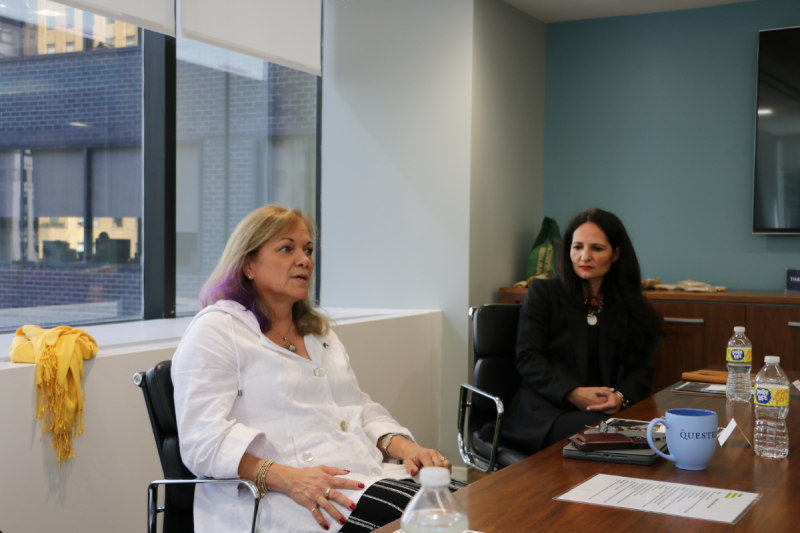
Nicole Altavilla, American Spa: How are clients different now? What are their expectations post-pandemic?
Lori Kruk, Aman, New York: I think they're looking for connections and interactions, to be honest. I find a lot of people are very chatty on the floor. They want to talk. We’re a one-stop shop because we have members. We’ve got cryotherapy, we do push IVs, we've got a salon, acupuncture, we've actually got a doctor in the house. So members will come in and they'll hang out for hours. They just want to feel safe. They want to get to know their membership community. They are very, very polite because they want to feel it's like their second home.
Christine Mariconti, Miraval Berksires: I think the pandemic also gave everybody pause to figure out what their new routine is. Miraval is very much based on a mindful wellness and taking care of the individual and really meeting each person where they stand where they are, so it's about developing individual programs for them, allowing them to experiment and grow in their own wellness routine to get that balance that we all talk about all the time. But that means something different to every one of us. So what is that for each individual? So we have such varied, prolific number of programs and spa treatments. We try to give them that and then give them the tools to take home with them so they can continue that journey, whether it's wellness or balance or peace, or all of those things. I love giving people the opportunity to stop. I'm the person who says, "How does your schedule look today?" And when I see they've got back-to-back sessions, I say, "Why don't we cancel something? Why don't we carve in some time for nothing? When is the last time you took a nap? When is the last time you closed your eyes?” I promise them that no one here knows who you are. No one's looking at a watch, and no one's saying "You rested for 15 minutes, you should feel better now.” That doesn't happen here, so you're safe. Go in there, get on the chaise, go into a fetal position, pull up a blanket.”